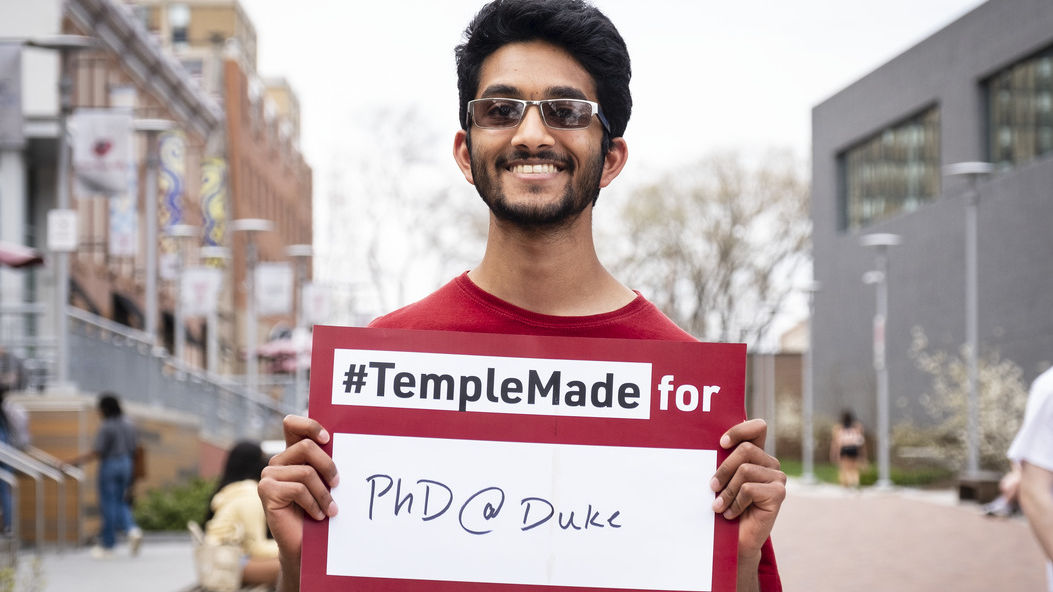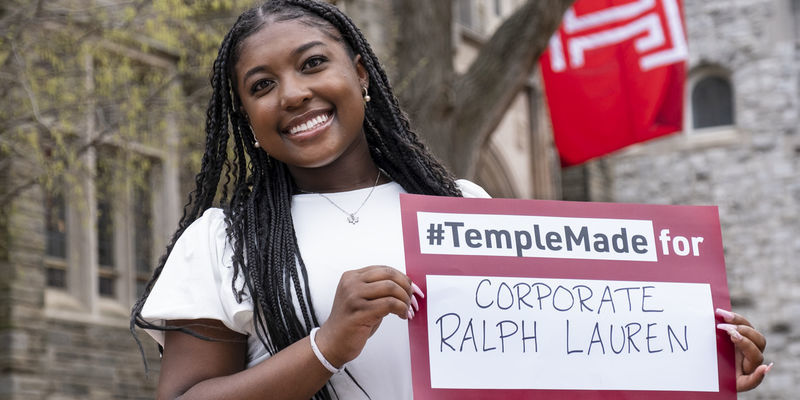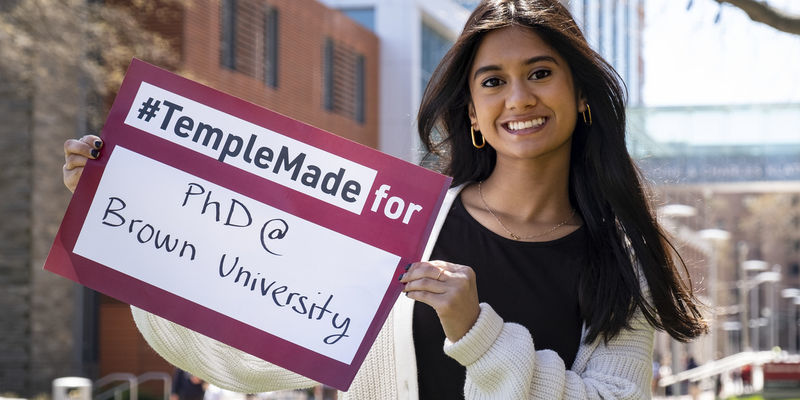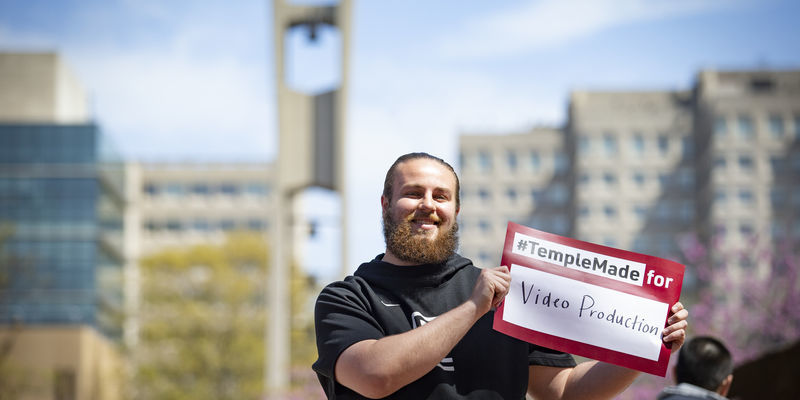Temple Made for … using data to solve problems
After exploring his interests in a range of humanities classes, Srikar Katta discovered the field of data science. Now, he’s set to continue to search for the meaning behind numbers through a PhD program at Duke University.

Name: Srikar Katta
Hometown: Hatfield, Pennsylvania
Major: Mathematics and Computer Science
Temple Made moment: “A project I worked on with Gopuff in fall 2020. When COVID-19 happened, it was a breeding ground for new research questions because there was behavior no one had seen in 100 years. I was interested in the question: During times of disaster, will people band together to help others? We wanted to specifically look at how people treat delivery drivers. I worked with Dr. Edoardo Airoldi and Dr. Jeanne Ruane—two statistics-focused professors at Fox—who both really encouraged and motivated me. I realized then that Temple is an interdisciplinary place where I can really explore and solve problems.”
For Srikar Katta, Class of 2022, Temple is a place of academic inquiry. Coming out of high school, he was drawn to Temple’s high-achieving Honors program. He hit the ground running, taking economics, political science, psychology and math classes. He even dabbled in some outside-the-box classes, like a theater class that he says helped him with public speaking and building confidence.
“I was able to take full advantage of Temple’s humanities classes and explore my passions,” he said.
After considering an economics/political science double major, a new path opened up during a first-year psychology research project.
“A PhD student on the project taught me a computer language called R that helps uncover a story about the data,” Katta remembered. “I began to understand that you need to clean and visualize data to gain insights and interpret it—that’s how you transform a hodgepodge of numbers into something that makes sense.”
Research became the new main pillar of Katta’s academic foundation, with much of his classes, internship and extracurriculars focused on data science. Katta explains data science as “a field that’s at the intersection of computer science; statistics; and a ‘domain’ like biology, economics or psychology. It’s using computational techniques to motivate the study of these domains.”
Data science empowered Katta to become a “data detective.” His favorite part of the study was its interdisciplinary nature and how working with data allowed him to follow his natural curiosity.
“I’ve always been curious, whether that’s watching random YouYube videos or getting lost in a book,” he said. “As a researcher, you’re able to be independent and ask the questions you want to learn more about.”
For example, during his junior year, Katta interned at the U.S. Bureau of Labor Statistics, investigating the immigrant wage gap.
“I was researching the questions: Do immigrants make more or less money than foregin born workers, and what features moderate this relationship?” he said. “Being able to look at it through this lens showed me that there is so much to do with this data.”
Some of Katta’s other accomplishments at Temple include co-founding Temple’s Data Science Community; working as a researcher at the Federal Reserve Bank of Philadelphia; participating in Temple’s Honors Appalachia service program; and being awarded the Provost Office’s Creative Arts, Research and Scholarship Grant, which allowed him to research charitable giving behaviors during natural disasters.
“One of the biggest problems with doing research is funding or opportunity cost,” he notes. “Temple gave me tons of opportunities.”
After graduating this spring, Katta is headed to Duke University to pursue a PhD in computer science. Because data science is so integrated into various industries, he says he could imagine eventually working at Google, Amazon or another company that’s looking to solve problems with data.
“I don’t exactly know what I want to do [after Duke], I just know that I definitely want to do research,” he says. “And, hopefully, my work will have some societal impact or benefit.”
-Emily Kovach



